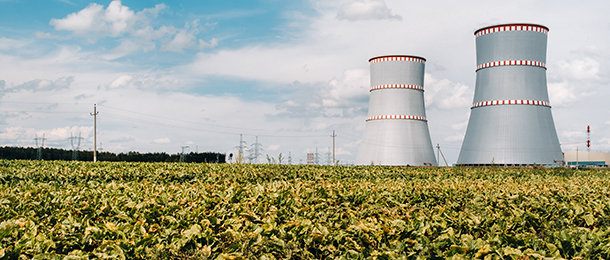The increasing use of artificial intelligence (AI), digital services and robotics will drive the use of nuclear energy as renewable energy sources will be insufficient to meet their demand for power, according to an investment strategist.
Global X head of investment strategy Scott Helfstein noted while fossil fuels will remain in use, the change in demographics in developed nations will require more sources of energy to drive their economies.
“If we’re going to live in an increasingly automated and digitised future with AI, enterprise software and robots and believe that we’re going to power the future off fossil fuel, that doesn’t make a lot of sense to me. Unfortunately, while wind and solar will continue to improve, they’re not the renewable solution,” Helfstein said during a recent media briefing in Sydney.
“Those technologies are critical because the four largest economies in the world have a demographic problem whereby working age to total population in the US, Europe, China and Japan are all shrinking, so we need these technologies to maintain our quality of life.”
He recognised the shift to nuclear power was already taking place in Japan, which was turning on its reactors for the first time since the Fukushima accident in 2011, and in Germany, which was also turning on nuclear power plants having previously been reliant on natural gas from Russia.
US companies were also seeking their own sources of power, with Amazon Web Services, which provides cloud computing services, recently purchasing a data centre located next to a nuclear power plant, he said.
He pointed out the next generation of reactors would not be large facilities, but small modular reactors (SMR) and large companies, such as Westinghouse, were developing plans for their construction.
“The thing about SMRs is it’s not rocket science, it’s nuclear science and we know how to do this. We have been floating small modular reactors around the world hundreds of feet under the seas for 60 years [inside submarines],” he said.
“We know how to do this and it won’t be the case of building a nuclear power plant next to you, but building these little reactors that don’t pose a lot of risk in the middle of nowhere to power these massive data centres.”
He said the use of SMRs may also impact the development and adoption of electric vehicles and battery technology.
“Maybe the move for lithium isn’t the explosive growth in the vehicle market, but rather that everybody has a battery pack attached to their house and in the middle of the night, when there’s excess capacity, you’re charging that battery,” he said.
“We’re going to need all of these solutions as there isn’t one clean energy solution out there. We have to rebuild the energy ecosystem and use all of it and so while nuclear has had a stigma, we’re starting to see around the edges a change.”


